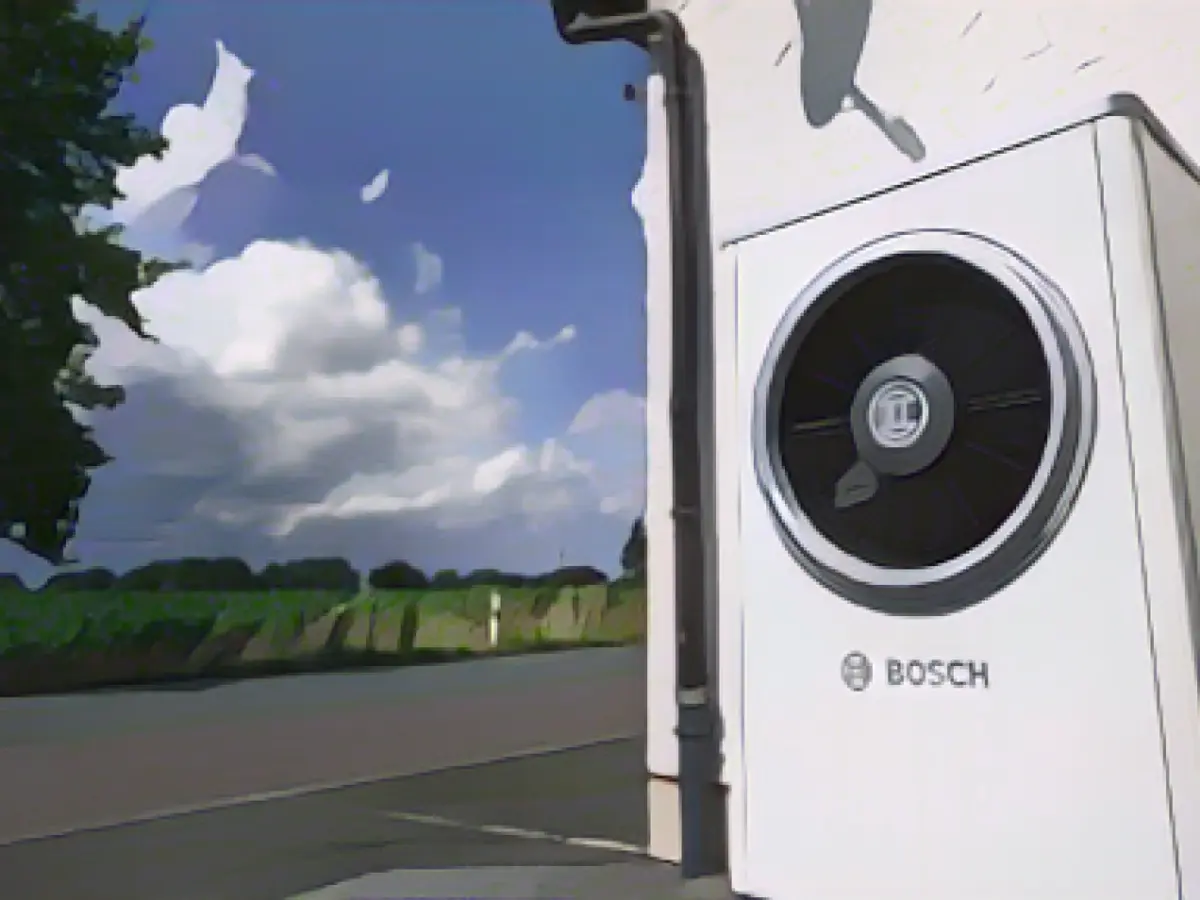Geywitz and Habeck advise rapid replacement of fossil fuel heating systems
Geywitz referred to the speed bonus provided for therein. However, it is of course up to each individual to decide whether they want to take advantage of it. Like the Heating Act - officially the Building Energy Act - the new funding guidelines are due to come into force at the turn of the year. Applications for funding can be submitted to the federal development bank KfW from the end of February, but also retrospectively for all projects commissioned or already started from now on.
The new law is intended to accelerate the switch to more climate-friendly heating. Newly installed systems must be operated with at least 65% renewable energy; conventional oil and gas heating systems are generally unable to achieve this. However, this initially only applies to new buildings in new development areas, but will gradually become the general rule.
The maximum subsidy rate for the installation of heating systems is to be increased by up to 70 percent for private individuals. Every owner who installs a climate-friendly heating system should be able to receive a 30 percent subsidy. A further 30 percent is reserved for low-income homeowners. There is also a "climate speed bonus" of 20 percent, which is reduced over time. These pillars can be combined to a maximum of 70 percent.
Habeck described the launch of the subsidy as "an important signal". When investing in climate-friendly heating systems, "we are helping the citizens of the state and supporting them with a great deal of financial power from the state," the minister continued when announcing the funding guidelines.
"This is crucial, because we need to make progress in climate protection in the building sector in a way that is feasible for people," emphasized Habeck. He expressed his relief that, despite the budget bottlenecks, "we have managed to secure the money in the Climate and Transformation Fund for this" and that the funding is also socially oriented.
Geywitz defended the mandatory advice that will be provided in future before a new gas heating system is installed. "It makes sense to point out to people that gas heating is becoming an expensive heating system - simply because the price of CO2 is rising," she said. "If we don't communicate the consequences of technical upheavals, we could be in for a rude awakening." According to Geywitz herself, however, she does not want to replace her gas heating system for the time being, but only "when it is irreparably broken".
The national CO2 price, primarily for petrol, diesel, heating oil and natural gas, was introduced in 2021 at 25 euros per tonne and will rise from the current 30 euros to 45 euros from January 2024. The instrument is intended to provide incentives to reduce the consumption of fossil fuels and thus CO2 emissions. In 2025, 55 euros per tonne will be due, after which a further increase is expected.
The targets for reducing CO2 emissions in the buildings and transport sectors in Germany have recently been missed several times. However, SPD politician Thomas Losse-Müller was critical of the German government's concept for the heating transition. In the "Neue Osnabrücker Zeitung" newspaper, he recommended focusing more on municipal heating networks than on individual building renovations and the installation of heat pumps there.
Read also:
- This will change in December
- Attacks on ships in the Red Sea: shipping companies avoid important trade route
- Houthi rebels want to launch further attacks despite international coalition
- USA forms military coalition against Houthi attacks on ships in the Red Sea
- The 'Heating law', also known as the Building Energy Act, aims to quicken the shift towards more climate-friendly heating, as advised by Klara Geywitz and Robert Habeck.
- Under the 'Heating law', new heating systems must be operated with at least 65% renewable energy, making conventional gas heating systems less viable.
- Robert Habeck described the subsidy launch as a significant step, stating that it would support individuals investing in climate-friendly heating systems.
- Applications for the subsidy can be submitted to the KfW Banking Group from the end of February, and retrospectively for projects started from the present day.
- Habeck emphasized the importance of making progress in climate protection in the building sector, while ensuring affordability for citizens.
- Geywitz defended the mandatory advice to be provided before installing a new gas heating system, stating that it was necessary to inform individuals about the rising cost of CO2.
- KfW offers up to 70% subsidies for the installation of heating systems, with 30% for private individuals and another 30% for low-income homeowners.
- Funke Media Group reported that the national CO2 price for petrol, diesel, heating oil, and natural gas increased in 2021 to 25 euros per tonne and will rise further, providing incentives to reduce fossil fuel consumption.
Source: www.stern.de







